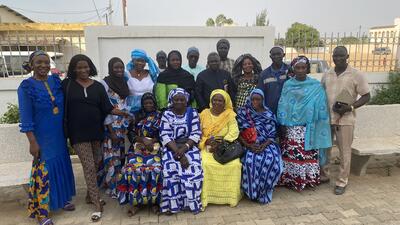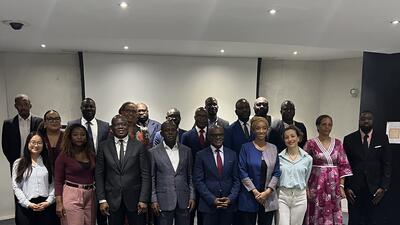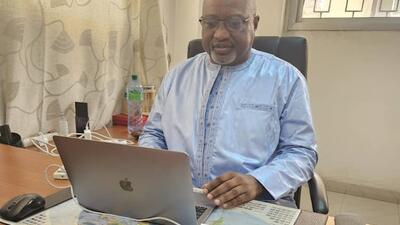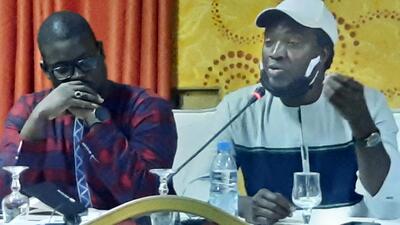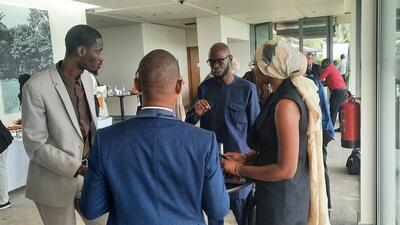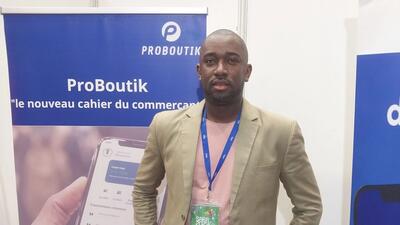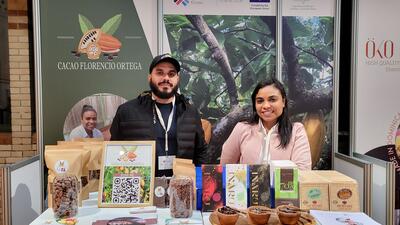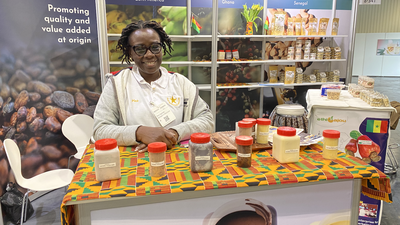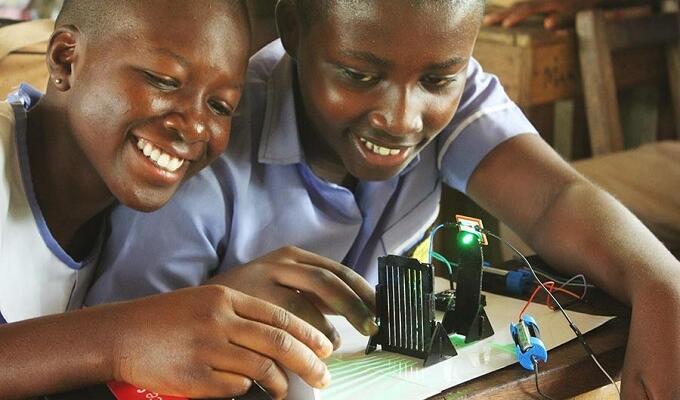
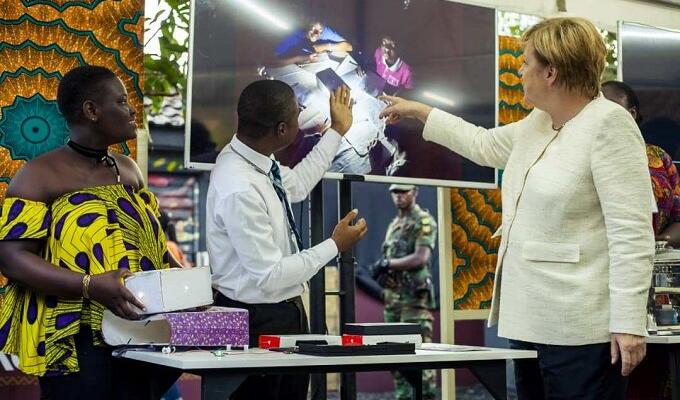
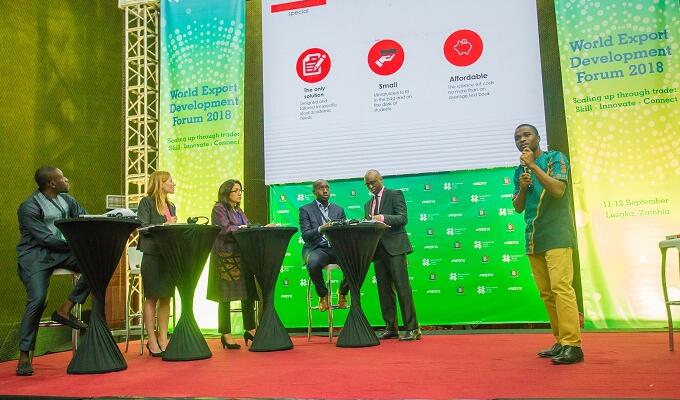
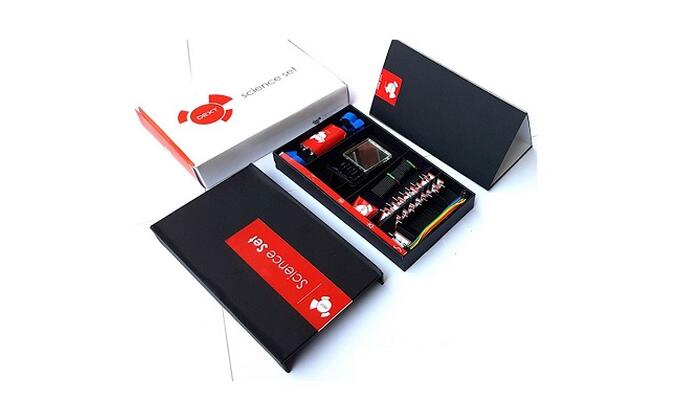
Championing science for change: Charles Ofori Antipem of Dext Technology, Ghana
Brownish and black. With gold letters on the bindings.
Charles Ofori Antipem was seven or eight years old when he first laid eyes on them: an A-Z set of Encyclopaedia Britannica at his local library.
He discovered the library one day while playing outside with friends. He remembered hearing some of the ‘best guys in school’ talking about it.
‘I almost didn’t enter,’ said the now 26-year-old serial inventor from Nsoatre, a town in the Brong Ahafo Region in mid-western Ghana. ‘But the librarian looked at my face, so I entered.’
This was where Antipem met the likes of master inventors Nikola Tesla, Thomas Edison, Henry Ford and the Wright brothers.
‘It was a whole new world,’ he said. ‘Reading about these people made me feel like I can also make things like that. From then on, I spent all my time at the library. Exciting times.’
Before long, he would read every volume in the encyclopaedia set.
Falling for science
The library ignited Antipem’s love of learning and inventing. His love of science came from his dad – Solomon Antipem, a science teacher – and on rainy days, a bottle and a funnel.
‘We didn’t have much in terms of science equipment, but he did have a rain gauge,’ Antipem said. ‘Every day when it rained, my dad would take me out to measure rainfall.’
This sparked his interest in the art of experimenting and collecting data. His mom, Cecelia Kyeremaa, was also ‘very, very supportive’ of his early interest in science.
‘Every now and then I would do a crazy experiment,’ he recalled. Once, his mom helped him to light a coal fire so he could boil a cassava to extract starch to build a prototype of a laser-based smoke detector.
‘I felt like she was part of my team,’ he said.
Excelling, unconventionally
Antipem excelled in school, in an unconventional way. He didn’t take notes in class – rather, he would sit, listen and imagine what the teacher said.
‘It’s like when I read books, I would get lost in the moment,’ he explained. ‘I’d be in a trance, imagine myself in the story. So when the teacher explained in class, I could imagine it. Atoms or whatever, I imagined, and it became very difficult for me to forget.’
In high school, he earned the nickname ‘crazy scientist’. While other students followed class schedules, he spent most of his time in the lab, creating and experimenting. Initially, he paid a price for it.
‘They sacked me from science lab,’ he said. ‘In senior high school, they said, “He’s not a serious student. Let’s take him from science to general arts classes.” I ditched classes and went to physics. After a year, the headmaster just gave up.’
If results speak for themselves, things worked out for Antipem. One example: During a physics exam in the lab, there was an issue with the experiment set-up. When the lab technician alerted the teacher, the teacher said, ‘Ask Charles to fix it.’
‘I got an A on that exam!’ said Antipem, laughing.
Becoming an inventor
By the age of 15, Antipem had created his first product: A flexible and water-resistant computer keyboard that could fit in a pocket, once folded. Using a kit he created, people could convert their traditional keyboards in five steps, in under 10 minutes.
He would soon add others to his list of inventions:
- Smoke detector with intertwining lasers that scan the entirety of a ceiling to detect smoke more quickly than conventional detectors;
- Evaporative cooling system for locally manufactured cars using indigenous earthenware technology;
- LED-powered drawing board for engineering students;
- Housing structure for plants that permits light to fall on targeted areas – based on distribution of auxins or plant hormones – so that plants grow into desired shapes; and
- Last but not least, the multi-award-winning Science Set, a $15 textbook-sized lab kit with 45 components that students use to perform experiments and learn science in a practical way.
This last invention is winning global recognition.
Gaining global traction
The story of the Science Set began in 2012, about 140 kilometres from Antipem’s hometown, at the Kwame Nkrumah University of Science and Technology in Kumasi in southern Ghana.
Antipem entered university to study mechanical engineering. During school breaks, he went back home and brought children together to teach them science.
It was during these trips that Antipem wondered: ‘I had only the rainfall bottle. What would happen if I gave the kids better than I had?’
So in 2015, in his dorm room, he built what would become a prototype of the Science Set. He and his friend Michael Asante-Afrifa then worked on improving it. When he brought this kit back to the children in his hometown, it made a difference: ‘The teachers were excited, and the kids were excited to be inventing,’ Antipem said.
Science teacher Maxwell Samuel Yamoah – who is also a career coach and the assistant headmaster of Berekuso Basic School in southern Ghana – uses the Science Set in his classroom. Students conduct activities in electricity, electronics, magnetism and electromagnetism.
‘The Science Set is a game changer,’ he said. ‘It makes teaching and learning of science more experiential and evidence-based. The change in pedagogy has developed critical-thinking skills, innovation and curiosity in students. This has developed the “can-do spirit” in them.’
Put a science lab on the desk of every student – that became Antipem’s goal. Spark students’ interest in science, technology, engineering and mathematics (STEM) in a hands-on way, encouraging them to pursue careers in those fields.
Why? ‘Because Africa needs more engineers to solve our problems.’
The need will only increase in coming years. More than half of the global population growth between now and 2050 is expected to take place in Africa, according to the United Nations. Youth within the continent will need relevant skills – particularly those in STEM – to support that level of growth in a sustainable way.
‘Students now have a sense of purpose in developing gadgets to solve problems they’ve been facing in their immediate environment and their country,’ Yamoah said. ‘They desire to learn continuously without even going for lesson breaks! It makes teaching and learning fun and exciting.’
For their part, Antipem and Asante-Afrifa are focusing on using the Science Set to help students learn in an experiential way. A year and a half ago, they became co-founders of Dext Technology, which produces the Science Set. The company has nine full-time staff and 26 part-time employees.
Today, 19,000 students in seven countries – Ghana, Côte d’Ivoire, Nigeria, South Africa, Zambia, Germany and the United States – perform experiments with Science Sets at school.
Winning pitch contests
To reach more students at a quicker pace, and to attract investment, the Dext Technology co-founders have been participating in – and winning – global pitch competitions.
In September, Antipem won first place and $5,000 for his pitch at the 2018 World Export Development Forum young social entrepreneurs pitch contest, beating out competition from across Africa.
The pitch contest was organized by the International Trade Centre’s Youth and Trade Programme, Impact Hub’s Accelerate2030 programme and Nyamuka Zambia.
Watch Charles Ofori Antipem’s winning pitch at the World Export Development Forum below.
‘I knew what I believed in, and why I was doing what I was doing – that was very profound,’ he said, reflecting on what stood out to him during that pitch. ‘I believed the thing we were doing could go somewhere, and if we succeed, it could really impact lives.’
Through the experience, Antipem gained new contacts and business leads.
Watch Charles Ofori Antipem’s post-win interview below.
In October, Antipem and the Science Set beat out hundreds of competitors to win the ONE Africa Award 2018 – and gain the title of the most innovative solution in education in Africa – along with $100,000. The ceremony took place at the African Union’s Innovating Education in Africa Expo in Dakar, Senegal.
Reaching a million
Many things have changed for Antipem since the day he first set foot in his local library as a primary school student. Or collected his first rainfall measurement.
‘Here I was, in a town that people don’t even know, the son of average parents who did farming, taught science,’ he said. ‘It would be really hard to imagine that I would go on to create the most innovative solution in Africa.’
So what does success mean to Charles Ofori Antipem?
‘Success is hearing an engineer in the future telling their story, beginning with: “When I was young, I had a Science Set.”’
The aim now is to put the award-winning kit into the hands of one million students in Africa in the next few years.
If he could, he would share this with his eight-year-old self (and other young, aspiring change-makers): ‘I would tell him to believe that the things he’s imagining are possible beyond his wildest imaginations. No matter what challenges you face, believe.’




